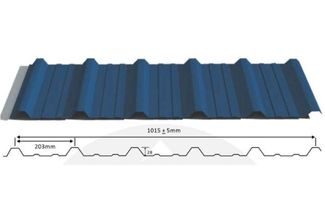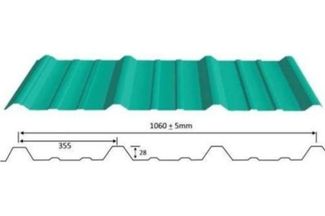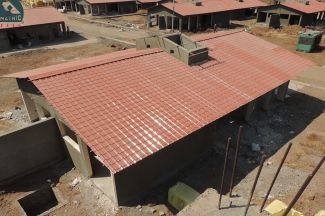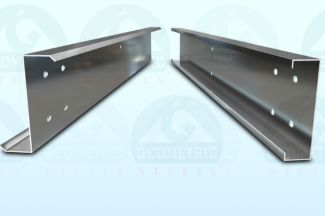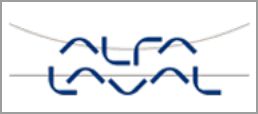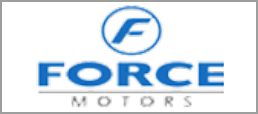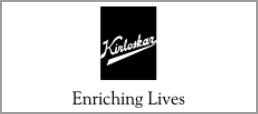
Transforming Industrial and Commercial Spaces with to Mezzanine Floors
In the world of industrial and commercial spaces, efficient use of available square footage is paramount. As businesses grow, the need for additional space often becomes a pressing issue. This is where mezzanine floors come into play. By maximizing vertical space, mezzanine floors provide a cost-effective solution for expanding usable area without the need for extensive renovations or new constructions. In this comprehensive guide, we will explore the intricacies of mezzanine floors, warehouse mezzanines, and industrial mezzanines, delving into their types, uses, benefits, and the role of steel decking sheets in their construction.
What is a Mezzanine Floor?
A mezzanine floor is an intermediate level installed between the ground floor and the ceiling of a building, effectively creating additional space for storage, assembly operations, or office use. Typically, a mezzanine floor covers up to 25% of the building’s floor area or less, strategically designed and positioned to fulfil specific purposes. By utilizing the vertical space between the floor and ceiling, mezzanine floors offer extra, cost-effective space with minimal investment.
While primarily used to create additional storage space, mezzanine floors also serve various other functions such as manufacturing, distribution, modular office areas, and expanding retail space. This versatility makes them an invaluable addition to any industrial or commercial facility.
Types of Mezzanine Floors
The versatility of mezzanine floors is only limited by imagination. Available in various styles and designs, mezzanines can be integrated into any building, often without the need for attachment to walls or ceilings. Let's explore the different types of mezzanine floors:
1. Freestanding Mezzanine Flooring
Freestanding mezzanine floors are supported by structural columns, providing flexibility to expand if additional space is needed. These mezzanines are ideal for heights of 40 feet or more, offering ample room underneath for lighting, electrical conduits, sprinkler systems, and air conditioning ductwork. Installing a freestanding mezzanine effectively doubles the usable work area, making it versatile and compatible with various building layouts.
2. Rack Supported Mezzanine Flooring
Rack-supported mezzanine floors are either fully or partially supported by shelving or racks. These systems feature closely spaced shelving with load capacities that often exceed other mezzanine structural designs. Ideal for additional shelving or storage for parts, machinery, and other materials, rack-supported mezzanines offer robust strength and can accommodate pallet racks and storage.
3. Full Mat Mezzanine Flooring
Full mat mezzanine flooring combines features of catwalks and freestanding mezzanines, offering exceptional versatility and adaptability. This type of flooring provides the benefits of a catwalk, a freestanding floor mezzanine, and a rack-supported mezzanine, making it a popular choice for bulk storage, office space, employee changing areas, and vending machines.
4. Catwalk Mezzanine Flooring
Catwalk mezzanine flooring consists of walkways suspended from first-level shelving or adjacent second-level shelving. These walkways provide easy access to new areas, offering an efficient and economical method for increased access. Regardless of installation, catwalk mezzanine flooring is an additional feature of mezzanine floors.
5. Multi-Level Mezzanine Flooring
Multi-level mezzanine flooring is an effective way to triple floor space by adding an additional level on top of an existing mezzanine or incorporating multiple levels from the outset. This installation typically includes multi-tier staircases and loading areas to enhance access to shelving across various levels, improving efficiency and material distribution.
6. Modular Mezzanine Flooring
Modular mezzanine flooring offers a cost-effective solution for purchasing and installing mezzanine systems. Manufactured off-site and delivered for quick assembly, modular mezzanines can be customized and configured to meet specific needs. These units can be easily disassembled, stored, or relocated to another site if no longer needed.
Uses for Mezzanine Floors
Mezzanine floors are ideal for businesses experiencing growth and needing additional space. They offer a cost-effective solution to maximize existing space without the need for renting or purchasing additional property. Here are some common applications of mezzanine floors:
Industrial Mezzanines
Industrial mezzanine floors are made of heavy-duty materials, usually stainless or carbon steel. They provide additional space for storage, production, and assembly areas, enhancing operational efficiency and productivity. The flooring varies depending on usage but commonly includes steel plating or concrete.
Warehouse Mezzanines
Warehouse mezzanines expand capacity without the need for additional buildings, adapting to growing business needs by adding shelving, extending racking lengths, and facilitating block stacking. This maximizes storage efficiency and allows for better organization of inventory.
Modular Offices
Modular offices in industrial settings provide convenient workspaces for first-level management. Assembled from pre-manufactured components, these offices allow managers to handle paperwork and communicate with employees while remaining close to the production area. Their proximity ensures accessibility and efficiency.
Retail Mezzanines
In retail environments, mezzanines are often incorporated into the initial design of the space, customized to accommodate product display needs and building layout. They offer flexibility and adaptability, making them popular in outlet stores where space requirements can vary.
Workshops
Workshops often face space constraints due to fluctuating business demands. Mezzanines provide extra workspace and storage area, improving communication, production, and supply chain management. This addition enhances overall workflow and efficiency.
Automation
Automation technology in modern manufacturing requires additional space for rapid movement of materials and products. Steel mezzanines offer practical solutions by supporting automation processes while preserving the ground floor for other uses.
Observation Decks
Mezzanines used as observation decks provide a vantage point to oversee facility operations and assess processes efficiently. This comprehensive visibility enables prompt adjustments and improvements, enhancing overall operational efficiency.
Catwalks
Catwalks facilitate efficient and safe movement of personnel by elevating walkways above ground level. This reduces ground traffic, opens pathways for forklifts, and ensures swift, safe movement throughout the facility, enhancing both efficiency and safety.
Advantages of Mezzanine Floors
Mezzanine floors offer several advantages, making them an attractive solution for businesses facing space constraints. Here are some key benefits:
Space Maximization
The primary advantage of mezzanine floors is the immediate boost in usable space. By adding an additional level, businesses can enhance inventory storage and operational efficiency with minimal disruption to ongoing activities.
Quick Installation
Installing a mezzanine floor is quick and straightforward compared to constructing an annex or a new building. The process is minimally invasive, leaving existing walls, floors, and columns unaffected.
Mobility and Flexibility
Mezzanines offer exceptional flexibility as they are not permanent structures. They can be relocated, removed, or reconfigured to adapt to changing business needs. This adaptability allows businesses to streamline operations and adjust space requirements with ease.
Cost-Effectiveness
Constructing new buildings or infrastructure involves significant investment. Mezzanines provide a cost-effective solution for expanding usable space at a fraction of the cost. With a modest investment, businesses can effectively double their available space without major financial outlay.
Customizability
Mezzanine floors can be installed in any building with sufficient ceiling height. They are highly adaptable, allowing for customization to fit around existing columns, walls, and equipment. Whether for different layouts, components, or load requirements, mezzanines can be designed to meet specific needs.
Clutter Reduction
As businesses grow, clutter and disorganization often accumulate. Adding a mezzanine helps address and organize these areas, enhancing overall workflow and efficiency. Effective organization is key to business success, and a mezzanine provides an opportunity to tackle these challenges head-on.
Longevity
Mezzanine floors are built to last, providing long-term stability and supporting business success for many years. Their role in maintaining operational efficiency ensures their longevity and continued usefulness.
Role of Steel Decking Sheets in Mezzanine Floors
Steel decking sheets play a crucial role in the construction of mezzanine floors, providing structural integrity and support. At Geometric Steels, we manufacture high-quality steel decking sheets designed for mezzanine floors. Our products, including Steel Decking Sheets 76 mm, Steel Decking Sheets 102 mm, and Steel Decking Sheets 52 mm, offer various benefits:
Steel Decking Sheets 76 mm

Steel Decking Sheets 76 mm offers a broad variety of covers per weight, making it perfect for a range of general construction purposes. It works stably on slab concrete mixes and can be used as a working platform as well as formwork to support wet concrete in the assembly state. Steel Decking Sheets 76 mm is ideal for multi-storey buildings, residential and industrial structures, shopping malls, storage facilities, mezzanines, bridges, walkways, and platforms. Its lightweight nature reduces concrete use and slab thickness, allowing for quick construction and faster project completion.
Steel Decking Sheets 102 mm

Designed to handle greater spans, Steel Decking Sheets 102 mm features a high crest at 102 millimeters. This deck sheet is more durable than traditional shuttering, offering technical and practical advantages. It works stably on slabs of concrete mixes, serving as a working platform and formwork. Composite deck slabs and beams with steel columns are commonly used in various industries due to their rapid construction and industrial scale.
Steel Decking Sheets 52 mm

Steel Decking Sheets 52 mm Profile is top in its class with a maximum length of 1030 mm and a crest height of 52 mm. The zinc-coated steel serves as a permanent formwork, creating a stable base for working on the slab's design. Its trapezoidal shape allows for quick and easy building overlap, supporting concrete load in wet form and construction load. This profile is highly cost-effective, enabling speedy construction and providing greater corrosion resistance for a long life.
Mezzanine floors are a versatile and cost-effective solution for businesses seeking to maximize their space without the need for extensive renovations. With various types of mezzanine floors available, businesses can choose the design that best suits their needs, whether for industrial, commercial, or retail purposes. At Geometric Steels, our high-quality steel decking sheets play a vital role in constructing durable and efficient mezzanine floors, ensuring that businesses can optimize their space and operations effectively. By investing in mezzanine floors, businesses can enhance their productivity, streamline their operations, and achieve long-term success.
Keywords: mezzanine floor, warehouse mezzanine, industrial mezzanine
Our Other Products
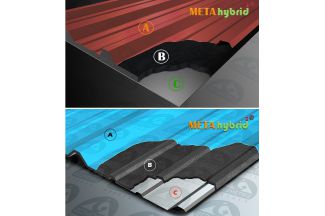
METAhybrid®
METAhybrid® Thermal Insulated metal sheets with 6mm to 50mm thick thermal and sound insulated roofing solution.
Read More
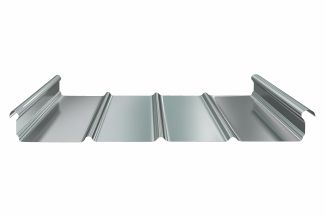
SteelzipTM
SteelzipTMStanding seam that covering entire building with panels joined together with a double lock standing seam.
Read More
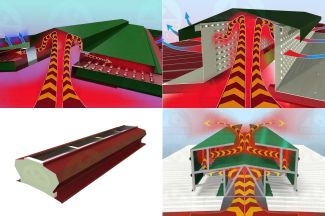
Airflow Ridge Vent
Airflow Ridge vent is a unique ventilation product by Geometric Steels, installed at the peak and running the length of ridge line. Best for solar roof.
Read More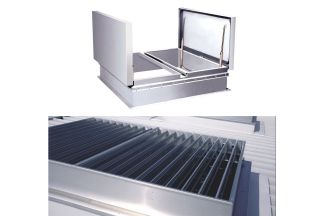
Smoke Vent
Prompt venting in case of fire is essential. Smoke vent is a device fitted on roof that will allow smoke to escape providing a safer means of escape.
Read More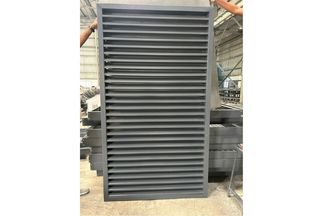
Metal louvers
Geometric steels specialize in customized louver manufacturing aluminum and steel powder-coated louvers with all built-in facilities.
Read More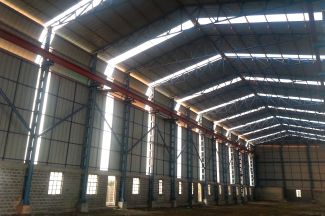
Polycarbonate Skylight Sheets
This is the simplest method of getting controlled light transmission through a steel sheet roof. Available in all required profiles.
Read More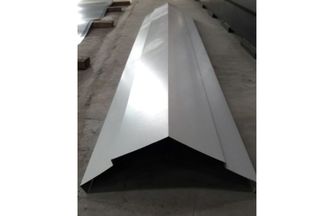
Flashing and Accessories
Geometric steels USP in design and manufacturing flashing up to 5000mm length in 0.4mm to 3.00mm thickness in all metal.
Read More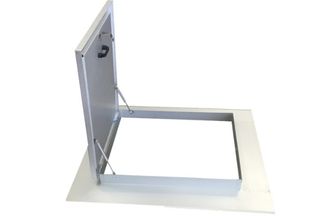
Roof Access Hatches
Low-profile design that allowed architects to keep clean building lines. Economical as compared to conventional staircase periphery construction.
Read More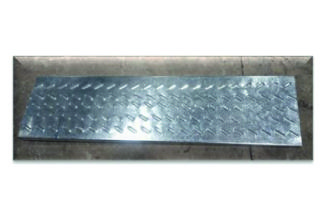
Roof Walk Way
Roof Walkways provide safe access to rooftop equipment and maintenance while eliminating damage to roof Sheets from foot roof traffic.
Read More

